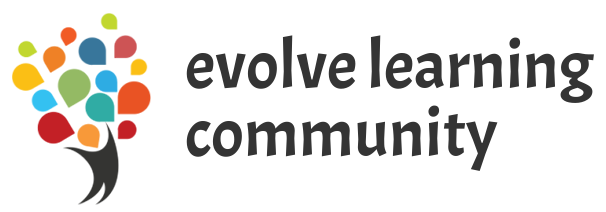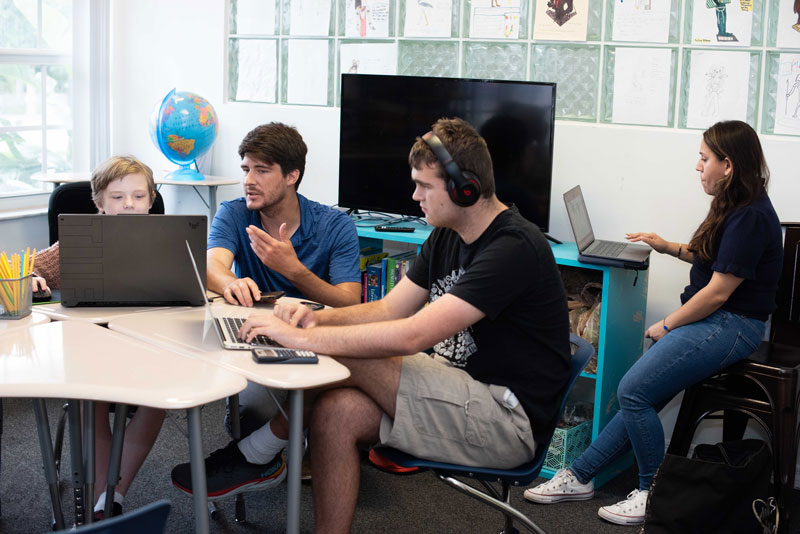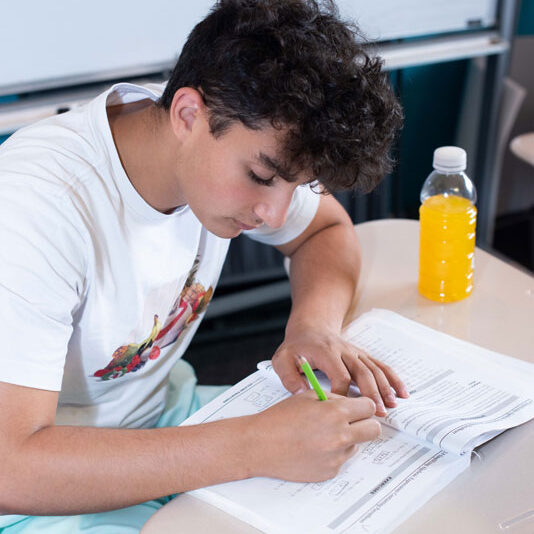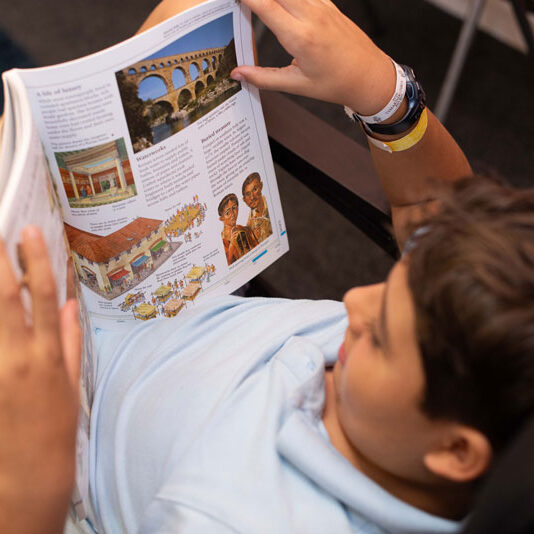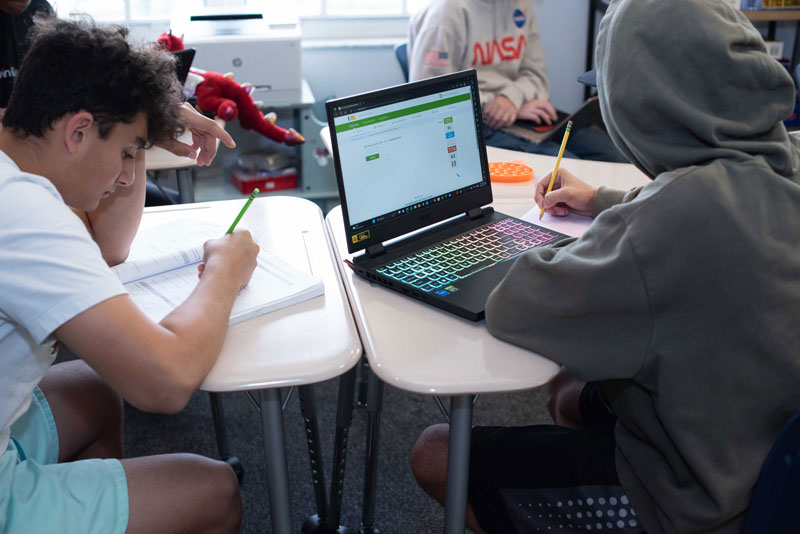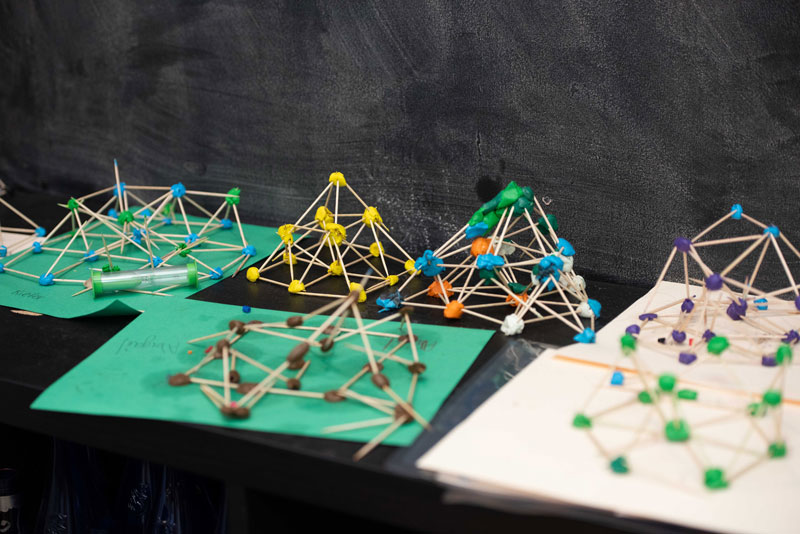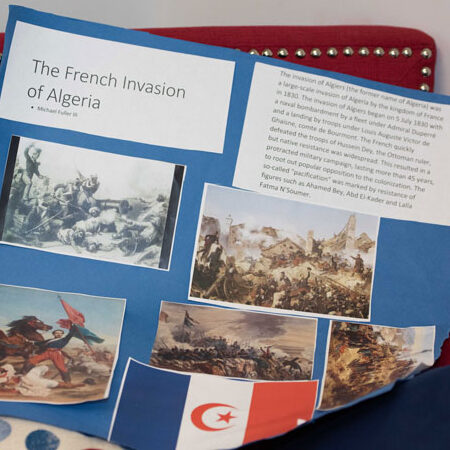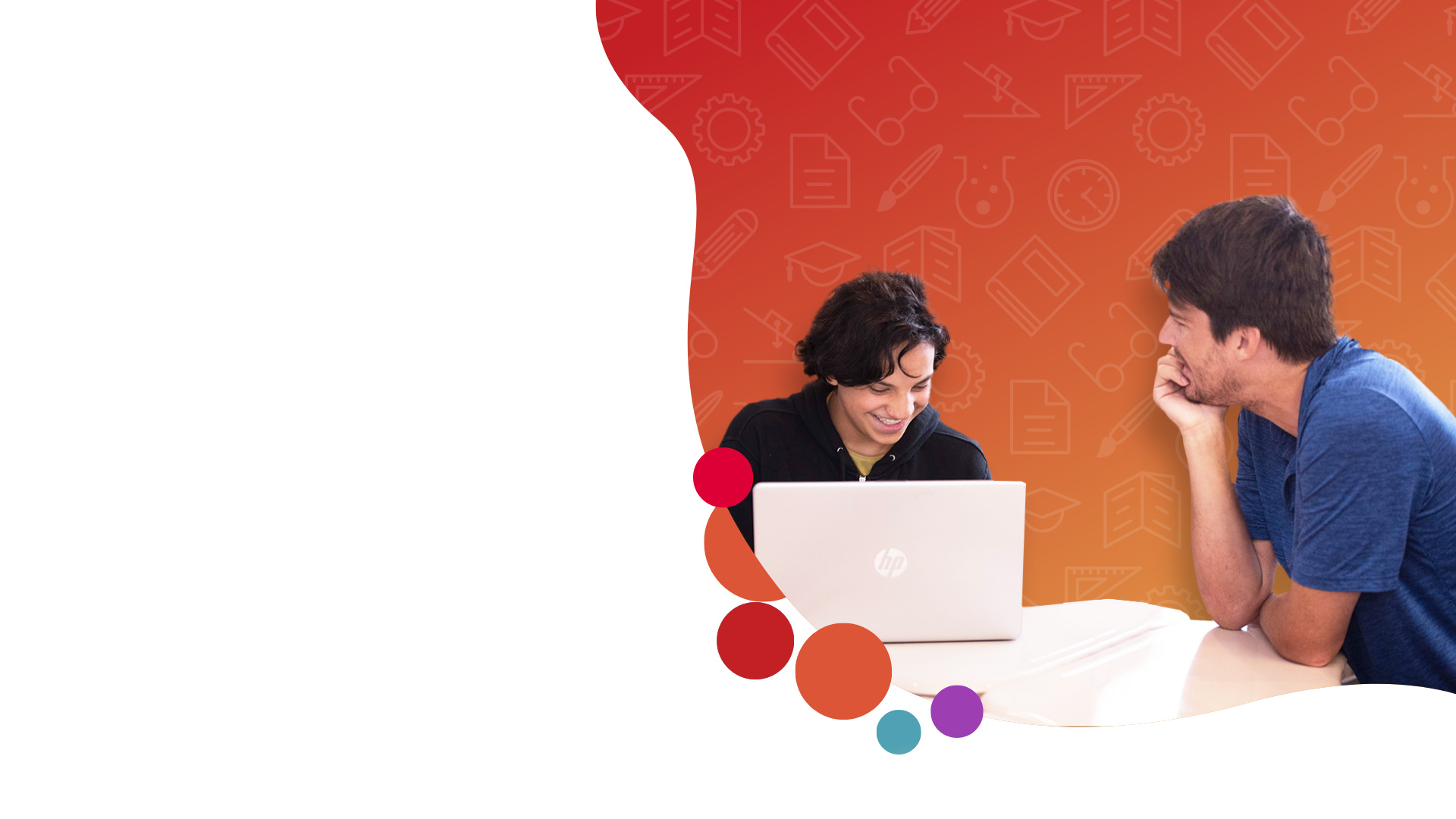
Our Programs
✓ Full-time/Part-time drop-off program
✓ 1:1 Classes
✓ Tutoring
Our Programs
✓ Full-time/Part-time drop-off program
✓ 1:1 Classes
✓ Tutoring
Our full-time program operates Monday-Friday 9-4. We also have part-time options depending on the needs of the student.
For homeschoolers wanting one-on-one classes, ELC provides classes in a variety of subjects. These classes can be in-person, online or a combination of both.
Our professional and highly qualified teachers and tutors provide academic tutoring in the areas of math, reading, and writing from grades 1 through 12.
Our Academics
We recognize the foundational importance of mental, physical and emotional health and its relationship to academic success. By prioritizing wellness, we aim to create a positive and nurturing environment where students can thrive academically and personally. We believe that a strong foundation in wellness, which includes daily and free access to art, music, acting, movement, will not only lead to academic success, but also to lifelong habits of self-care and well-being.
Our Policy on Homework
Research has shown that excessive homework can have negative effects on students’ mental and physical health, can cause unnecessary stress for families, and may not necessarily improve academic achievement. ELC has adopted a no homework policy to address these concerns and promote a more balanced approach to learning.
How do we measure learning?
Our belief is that learning can occur in various settings and is not limited to students sitting in orderly rows of desks while a teacher lectures them on a subject.
Measuring learning can be a complex process that involves assessing the acquisition and application of knowledge, skills, and attitudes over time. Traditionally, learning has been measured through standardized tests and exams, but as you noted, learning can take many different forms and occur in a variety of settings.
One approach to measuring learning in non-traditional contexts is to use formative assessments that provide ongoing feedback to students and teachers. These assessments can take many different forms, such as observations, quizzes, journal entries, and self-reflections, and can be used to track progress over time.
Another approach is to use performance-based assessments that measure a student’s ability to apply their knowledge and skills in real-world contexts. For example, a student might be asked to design and build a prototype, write a research paper, or give a presentation on a particular topic.
Regardless of the approach used, it’s important to ensure that assessments are aligned with the learning objectives and goals of the curriculum. Additionally, assessments should be designed to provide useful feedback to both students and teachers, so that learning can be adjusted and improved as necessary.
Ultimately, measuring learning requires a flexible and nuanced approach that recognizes the diversity of learning experiences and the unique needs of individual learners. By using a variety of assessment strategies and providing ongoing feedback and support, we can better measure and support learning in all its forms.
Formative assessments are ongoing, frequent assessments used to gauge student understanding and adjust instruction as necessary. These may include quizzes, exit tickets, writing prompts, or class discussions. Summative assessments are comprehensive evaluations of student learning at the end of a unit or grading period. These may include unit tests, essays, or projects.
Interactive notebooks are used to encourage student engagement in the learning process. Students take notes and complete activities in a notebook that is organized and personalized to their specific learning needs.
S.M.A.R.T. Goals (Specific, Measurable, Achievable, Relevant, Time-bound) are collaboratively set by teachers and students to establish achievable learning goals. Progress updates are shared with parents on a regular basis via WhatsApp Threads.
Group socratic discussions provide a forum for students to share their understanding and explore new ideas. Students are encouraged to ask questions and engage in critical thinking.
IXL and other diagnostic tools are used to monitor progress and identify areas where additional support is needed. Mid-Year and End of the Year Reports communicate student progress to parents, and Team and Parent Meetings provide an opportunity to discuss student progress and set goals for the future.
Portfolios are a collection of student work samples that demonstrate growth over time. These may include writing samples, artwork, or assessments.
Performance Based Assessments include tasks that allow students to demonstrate their learning in a hands-on or real-world context. These may include presentations, simulations, or role-playing activities.
Finally, Annual Homeschool Evaluations are required by Florida law for homeschool students. These evaluations assess student progress and are conducted by our qualified evaluators.
Language Arts
Students engage in a variety of reading materials and writing exercises to further enhance their language arts skills. We place a particular emphasis on analyzing informational texts, as this skill is crucial for success in higher education and the workforce. Our students learn how to identify and interpret key details, determine the author’s purpose, and evaluate arguments and evidence.
We also prioritize organizational skills, emphasizing the importance of clear and effective communication in both written and verbal formats. Students explore various organizational structures for different types of writing, such as persuasive essays or research papers. They learn how to use evidence and analysis to support their arguments, and they practice editing and revising their work for clarity and coherence.
Throughout the program, we encourage our students to express themselves through writing and reflection exercises, such as journaling or creative writing prompts. We also focus on grammar and mechanics to help students develop a strong foundation in language skills.
Finally, we place a high value on building vocabulary. Students are exposed to a variety of texts that challenge them to learn and use new words, and we integrate vocabulary exercises throughout our program to reinforce their learning. By building a strong foundation in language arts, our students are better equipped to succeed in all areas of academic and professional life.
Math
Teaching strategies used in math class may include individual and group work, hands-on activities, real-life problem-solving scenarios, guided inquiry, discovery learning, and formative assessment techniques to monitor student progress and adjust instruction as needed. The ultimate goals are to help students develop fluency, accuracy, and confidence in their math skills, as well as an appreciation for the beauty and usefulness of mathematics in their daily lives.
Science
We believe in incorporating hands-on activities and experiments that allow students to explore and discover scientific concepts in a meaningful way. By using technology, students will have opportunities to conduct experiments, work with data and create presentations to showcase their findings.
Throughout our program, we also emphasize the importance of collaboration and communication skills. Students will work in teams to complete projects and present their findings to their peers and families, allowing them to develop essential skills that are necessary in their futures.
In addition, we prioritize the integration of art and history into science education, recognizing their significance in enhancing critical thinking and creativity. By exploring the history of science and technology, students will gain a deeper understanding of how scientific discoveries have influenced the world and can make valuable connections between science and social studies.
Overall, our program aims to provide a well-rounded science education that inspires curiosity, promotes critical thinking, and develops essential skills for success in any field.
History/Social Studies/Government/Civics
This approach to education promotes cross-disciplinary learning, allowing students to see how different subjects relate to each other and how they can be applied in real life situations. By teaching critical thinking, we encourage students to question information, analyze sources, and develop their own opinions. Our commitment to accurate history ensures that students are exposed to diverse perspectives and are able to understand the complexities of historical events. By addressing uncomfortable topics, we create a safe space for discussion and promote empathy and understanding. Ultimately, our goal is to create informed and responsible citizens who are equipped to engage in a complex, diverse global community.
Foundational workshops and classes
Note: These workshops and classes are just a sample and may vary
Yoga & Fitness: Students learn different yoga and fitness techniques to improve their physical and mental health.
Chess: Chess classes help students develop their strategic and critical thinking skills, as well as improve their concentration and memory.
World Languages: Students learn different languages and cultures, which can broaden their understanding and appreciation of other people and places.
Standards and Skills Centers: Math, Writing/Editing, Reading, Maps, Life Skills, Health & Wellness: These centers offer targeted support for students who need additional help in specific areas.
Additional enrichment and/or themed classes—check schedule: Depending on the institution or organization, there may be additional classes and workshops that focus on specific interests or themes.
Call (954) 440-2483 to learn more about Evolve Learning Community
